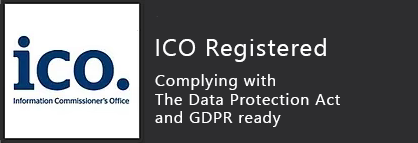
Travel and Safety Advice for Egypt
Essential Egypt Travel Advice | Stay Informed & Safe
Planning a trip to Egypt? Before you embark on this journey through the land of ancient pyramids and vibrant cities, ensure you’re up-to-date with the latest Egypt travel advice. From essential safety tips to health precautions and cultural insights, we've compiled all you need to know for a smooth and secure experience.
1. Travel and Safety Advice for Egypt
Egypt is a beautiful, culturally rich country with much to offer. However, like all destinations, it’s essential to be mindful of local advisories and safety information. Here are some key safety tips:
Avoid Certain Regions: Travelers are advised to avoid North Sinai due to ongoing security operations and possible unrest. Some areas in South Sinai and western Egypt are also restricted.
Stay Informed on Security Measures: Egypt’s government has heightened security measures around popular tourist sites. Expect frequent checkpoints, especially in Cairo, Alexandria, and along the Nile River Valley.
Be Cautious of Protests: Public gatherings and protests are not uncommon in Egypt. It's recommended to stay away from large crowds as demonstrations can occasionally turn confrontational.
2. Health Precautions and Travel Insurance
Prioritize your health and wellbeing while traveling in Egypt with these tips:
Vaccinations: Check with your healthcare provider for recommended vaccinations, especially for Hepatitis A, Hepatitis B, and Typhoid.
Stay Hydrated and Sun-Safe: Egypt's climate can be intense, especially in summer. Ensure you're staying hydrated and using sun protection while exploring outdoor attractions.
Travel Insurance: Comprehensive travel insurance that covers medical emergencies, theft, and trip cancellations is highly recommended for visitors to Egypt.
3. Visa and Entry Requirements
To enter Egypt, travelers need to be aware of visa requirements:
Visa Types: Most tourists can obtain a visa on arrival or apply for an e-visa online. Check the Egypt e-visa portal to see if your nationality qualifies.
Passport Validity: Ensure your passport is valid for at least six months from the date of entry.
4. Getting Around in Egypt: Taxis, Buses, and More
Navigating Egypt’s bustling cities can be a unique experience. Here’s what to know about local transportation:
Taxi Service: Local taxis are readily available in cities like Cairo and Alexandria. Use reputable services or apps to avoid overcharging, and agree on the fare in advance.
Ride-Sharing Options: Uber and other ride-sharing options are available in Cairo and make for an easy way to get around.
Public Transport: Egypt has buses and a metro system in Cairo, though these can be crowded. For convenience, taxis and ride-sharing are often preferred by travelers.
5. Respecting Local Culture and Customs
Egypt is a predominantly Muslim country, so it’s essential to respect local customs, especially in public:
Dress Modestly: While there are no strict dress codes for foreigners, modest clothing is appreciated. Avoid overly revealing attire when visiting religious sites or rural areas.
Photography Etiquette: Ask permission before taking photos of people or military establishments, as this can be sensitive.
6. Money Matters in Egypt
Currency and payment tips for a smooth financial experience:
Currency: The official currency is the Egyptian Pound (EGP). ATMs are widely available, and credit cards are accepted at larger hotels and restaurants, but carry cash for local markets and smaller vendors.
Tipping: Tipping, or "baksheesh," is customary in Egypt. Small tips are generally expected for services, so keep some small notes handy.
7. Emergency Contact Information
In case of an emergency, keep the following numbers handy:
Police: 122
Tourist Police: 126
Ambulance: 123
For more detailed information, check the latest Foreign Travel Advice for Egypt on the UK Government website. This resource provides real-time updates on security situations, travel alerts, and entry requirements.
Airport Transfers
Taxi fare calculator from Heathrow to Swannington
Stansted to Purley Taxi Transfer: Quick & Reliable
Taxi fare calculator from Heathrow Airport to Corfe Mullen
Reliable Airport Transfers from Luton to Brecon
Taxi fare calculator from Heathrow to Marston Green
Stansted to Stoke Poges Transfers: Seamless & Affordable Airport Rides
Taxi fare calculator from Heathrow Airport to Thoroton
Reliable Heathrow Airport Transfer to Waddesdon – Get a Quote Today
Reliable Airport Transfers from Luton Airport to Greatstone
Reliable Airport Transfers from Luton to Staines-upon-Thames
Gatwick Airport Transfer to Little Ilford - Book Your Reliable & Affordable Private Car Today
Taxi fare calculator from Heathrow to North End
Gatwick Airport Transfer to Lacey Green - Book Your Reliable & Affordable Private Car Today
Stansted to South Norwood Taxi Transfer: Quick & Reliable
Taxi fare calculator from Heathrow Airport to Barton-le-Clay
Gatwick Airport Transfer to Wrays - Book Your Reliable & Affordable Private Car Today
Taxi fare calculator from Heathrow Airport to Ravensmoor
Stansted to Drayton Taxi Transfer: Quick & Reliable
Taxi fare calculator from Heathrow Airport to Hollinsend
Reliable Heathrow Airport Transfer to Brixton – Get a Quote Today

 United Kingdom
United Kingdom English
English




